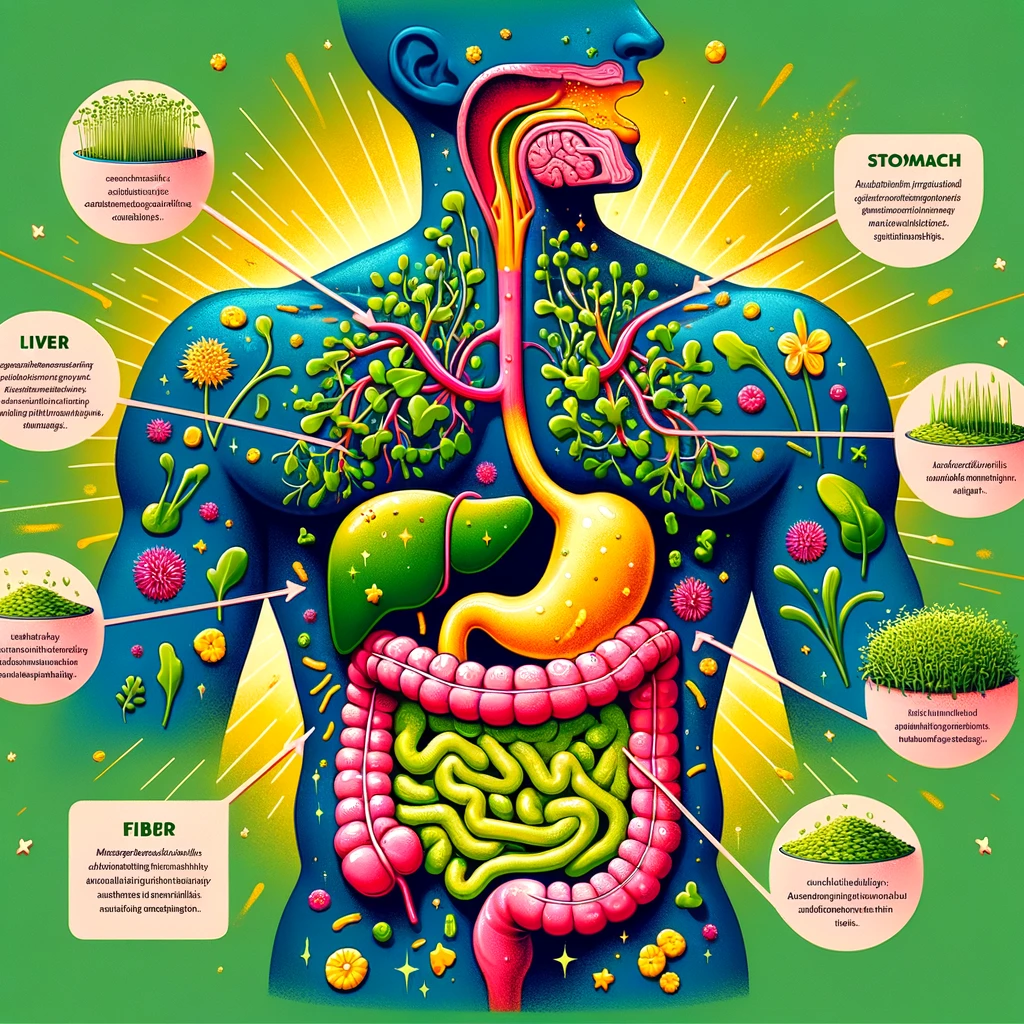
Gastroenterology focuses on the health of the digestive system, or the gastrointestinal (GI) tract. Microgreens can play a supportive role in gastrointestinal health due to their high nutrient density, antioxidants, and fiber content. Here’s a list of microgreens that might be particularly beneficial for supporting digestive health and why they are helpful:
- Broccoli Microgreens: Rich in sulforaphane, which may help protect the stomach lining and reduce the risk of gastrointestinal ulcers by eradicating Helicobacter pylori, a bacterium linked to gastritis, ulcers, and gastric cancer.
- Wheatgrass: Known for its high chlorophyll content, wheatgrass can aid in detoxifying the body, supporting liver function, and promoting healthy digestion.
- Pea Shoots: High in dietary fiber, which is essential for healthy bowel movements and maintaining a balanced gut microbiome. Fiber can also help prevent constipation and promote overall digestive health.
- Radish Microgreens: Contain compounds that can stimulate digestion and improve the efficiency of the digestive process. They also have a mild detoxifying effect that can benefit the liver and gallbladder.
- Fenugreek Microgreens: Known for their ability to soothe gastrointestinal inflammation, reduce acidity, and improve digestion. They have been traditionally used to treat stomach disorders.
- Mustard Microgreens: May have a stimulating effect on digestion due to their high enzyme content. They can also help in detoxifying the liver and blood.
- Sunflower Microgreens: Rich in essential fatty acids that can support the health of the GI tract lining, potentially reducing inflammation and aiding in the absorption of certain nutrients.
- Amaranth Microgreens: High in fiber and antioxidants, amaranth supports healthy digestive function and can help prevent constipation.
Integrating Microgreens into a Digestive Health-Focused Diet:
- Including a variety of microgreens in your diet can provide a broad spectrum of nutrients and phytochemicals that support digestive health.
- It’s important to increase fiber intake gradually and ensure adequate hydration to maximize the benefits of fiber for the digestive system.
- Microgreens can be easily added to salads, smoothies, sandwiches, and many other dishes, making them a versatile addition to a gastroenterology-friendly diet.
Consultation with Healthcare Professionals: Before making significant changes to your diet, especially if you have existing digestive health issues, it’s recommended to consult with a healthcare professional. A dietitian or a gastroenterologist can offer guidance tailored to your specific health needs and conditions, ensuring that your diet supports your digestive health without exacerbating any underlying issues.